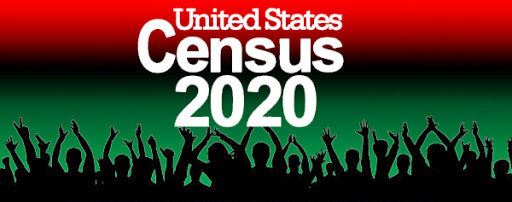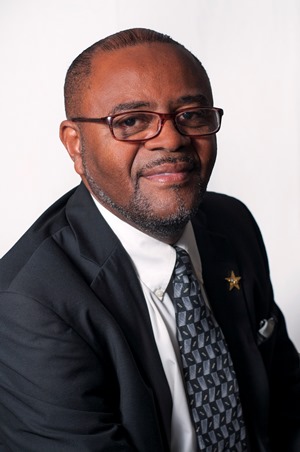
During the Census, several population groups – referred to as “hard-to-count” – are at a higher risk of not being fully counted.
Some may experience new or increased vulnerability due to major changes in methodology, such as relying on the internet as the primary way for responding to the 2020 Census in the household, while others may not respond due to concerns over data privacy.

In the Kern County African American community, several area-based organizations have made it a mission to ensure accurate counts.Nick Hill, President and CEO of the Kern County Black Chamber of Commerce and a member of the Kern Complete Count Committee, says the African American community has been historically underrepresented in the census for decades.
“Most African Americans have trouble trusting the government and are still very leery about what the Census is all about,” Hill said. “So, there’s some distrust in that area that we need to overcome especially in those harder to reach neighborhoods.”
Working in collaboration with My Black Counts, an education and awareness initiative developed by the California Black Census and Redistricting Hub “The Black Hub,” Hill says a combination of education and motivation has helped them reach overlooked areas through multi-media campaigning.
“We’re on it. We’ve been talking to people on the phone, through video, making sure that they count everyone in their household,” adding that since the COVID-19 pandemic quarantine, he’s made himself available to answer your questions by phone or email through the KCBCC office.
Hill’s work and training continues in the virtual world via webinars offered by My Black Counts as well as California Calls, a community-based alliance that spans urban, rural, and suburban counties across the state.
“During my training we covered a series of canvassing scenarios and what the team lead does in terms of reporting progress,” Hill said.
In addition to Hill and the KCBCC, a number of other influential local African American community leaders including Arleana Waller of She Power, Ucedrah Osby of All of Us or None-Bakersfield, and Dee Slade of the African American Network of Kern County have also been working independently on census engagement.
Hill applauds everyone’s efforts as collectively working for the common good, but suggests better communication can be established between all groups during the pandemic quarantine.
“Groups are working independently and cooperating. When a meeting is called, they’re right there, but we need to have regular meetings and find out where they are with their efforts and where we need to go. Everyone’s going out doing their own thing, but there’s not a lot of oversight and tracking, and that could lead to us missing a whole sector of people.”
According to the U.S. Census Bureau, there are close to 3 million African American residents living in California and more than 1.4 million are traditionally considered to be hard-to-count. Since 1980, African American populations have had below-average participation in the census and have been under-counted.
“I just a did a video filmed across Bakersfield – in the southwest area, near The Friendship House in Cottonwood, and in the Lakeview area telling everyone about the importance of the Census. I’ve also linked up African American faith-based organizations with California Calls and My Black Counts, putting everyone on the tracker and to help organize some phone banking.”
With eight Census kiosks on standby until the COVID-19 quarantine is lifted, Hill says an online questionnaire is the safest and most convenient way to respond.
“We need to make sure that we’re counted properly because of how it’s going to affect our Medi-Cal, Head Start, school lunches, affordable housing programs, seniors, veterans, presidential elections, the whole nine. That’s the main goal here.”
Kern Sol News is a youth-led journalism organization in Kern County. In their stories, reporters shine light on health and racial disparities in under-served communities across Kern. For more stories by South Kern Sol, head to southkernsol.org.